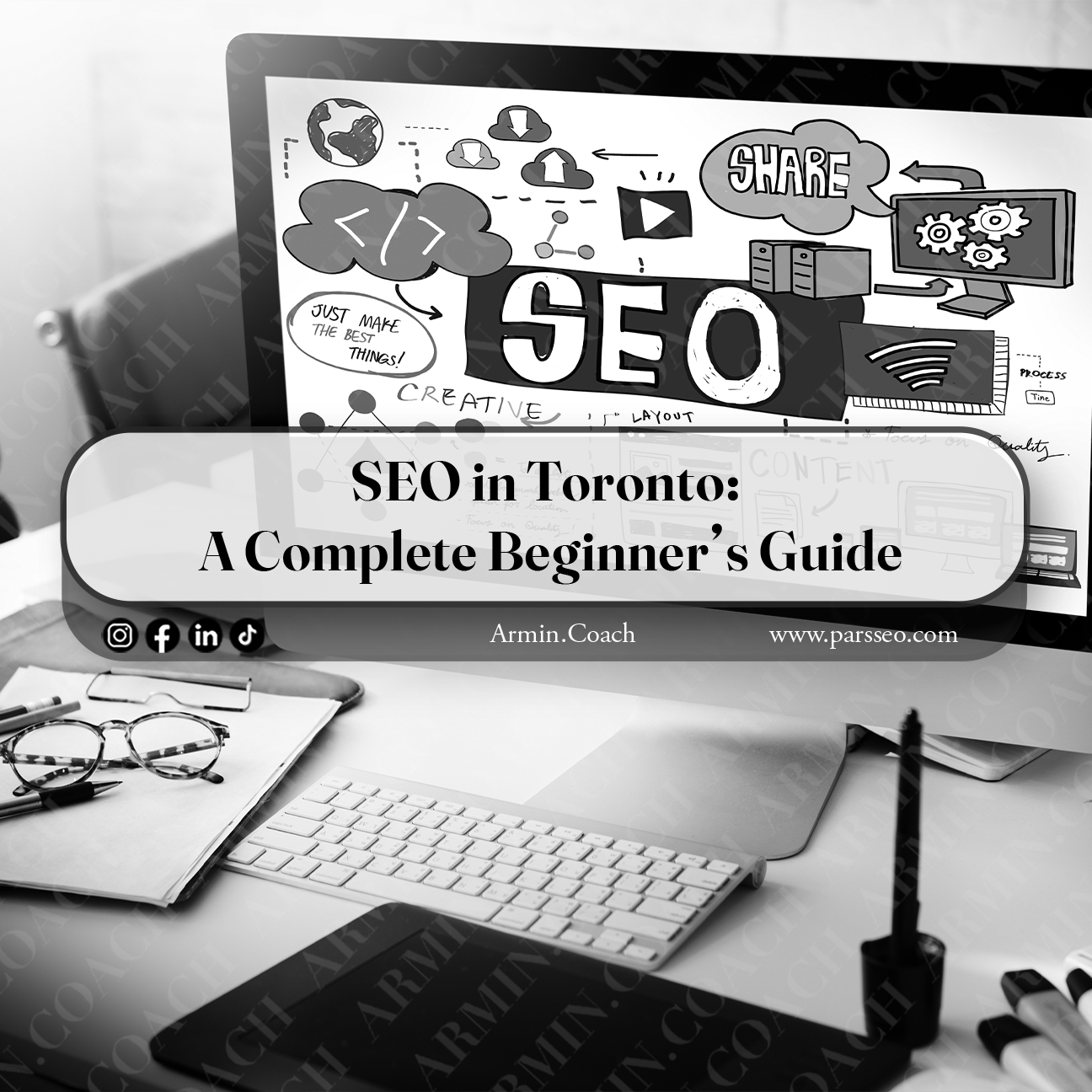SEO in Toronto: A Complete Beginner’s Guide
Why SEO Matters in Toronto
Toronto is more than just Canada’s financial hub — it’s a digital battlefield. With over 6 million residents in the Greater Toronto Area (GTA) and thousands of businesses competing for online attention, getting noticed online is no accident. If your business isn’t ranking on the first page of Google, you’re losing customers to competitors who are.
This is where SEO in Toronto comes in. Search Engine Optimization helps your website show up when potential customers search for your products or services. In this guide, we’ll cover everything from keyword research to technical SEO, specifically tailored for Toronto’s unique market.
1. Understanding SEO Basics
SEO isn’t a one-size-fits-all approach. It’s made up of several interconnected elements:
On-Page SEO – Optimizing your website’s content and structure so search engines understand it.
Off-Page SEO – Building trust and authority through backlinks, social proof, and mentions.
Technical SEO – Ensuring your site is fast, mobile-friendly, and free of crawl issues.
Local SEO – Targeting location-based searches so you appear in Google Maps and local results.
2. Why SEO in Toronto is Unique
2.1. High Competition
Toronto is home to startups, global brands, and everything in between. Every industry here is crowded, making strategic SEO critical.
2.2. Multilingual Audience
Toronto is one of the most multicultural cities in the world. You’ll find significant audiences searching in English, French, Mandarin, Punjabi, Arabic, and more. This opens opportunities for multilingual SEO.
2.3. Neighbourhood-Level Search Behavior
People often search for services in their specific neighbourhoods:
“Dentist in North York”
“Coffee shop Queen Street West”
“Real estate agent Scarborough”
2.4. Seasonal Trends
Winter: snow removal, heating services, indoor activities
Summer: patio restaurants, air conditioning repair, outdoor events
Fall/Spring: home renovations, landscaping
3. Keyword Research for the Toronto Market
3.1. How to Find Local Keywords
Use tools like:
Google Keyword Planner for search volumes
Ahrefs or SEMrush for competitor insights
Google Trends to track seasonality in Toronto
Include local modifiers such as “Toronto,” “GTA,” or specific neighbourhood names.
3.2. Examples:
“SEO in Toronto for small businesses”
“Best Italian restaurant Toronto”
“Hair salon downtown Toronto”
“Emergency plumber Toronto 24/7”
3.3. Multilingual SEO Tip
If you have a multilingual audience, create language-specific landing pages:
/fr/ for French
/zh/ for Mandarin
/ar/ for Arabic
4. On-Page SEO: Optimizing for Toronto Searches
4.1. Title Tags & Meta Descriptions
Your title tag should include the main keyword and location:
Example: Affordable Web Design – SEO in Toronto Experts
Meta descriptions should be compelling and encourage clicks:
Example: Boost your visibility with expert SEO in Toronto. Proven strategies for local businesses.
4.2. Header Structure
Use one H1 per page and break content into H2/H3 subheadings with natural keyword placement.
4.3. Localized Content
Create content specific to Toronto:
“Top 10 Toronto Brunch Spots for 2025”
“How Local SEO Helps Toronto Startups Grow”
4.4. Mobile Optimization
Over 60% of searches in Toronto happen on mobile. Use a responsive design.
5. Local SEO for Toronto Businesses
5.1. Google Business Profile (GBP)
Claim and verify your listing
Add correct name, address, phone number (NAP)
Upload high-quality photos
Respond to reviews
5.2. Local Citations
List your business on:
Yelp Toronto
Yellow Pages Canada
BlogTO business listings
5.3. Customer Reviews
Encourage customers to leave reviews and respond to each one — it boosts trust and rankings.
6. Content Marketing for SEO in Toronto
6.1. Create Toronto-Focused Content
Write blog posts, videos, or guides about local events, news, and trends.
Examples:
“The Best Coffee Shops in Toronto for Remote Work”
“2025 Digital Marketing Trends for Toronto Businesses”
6.2. Seasonal Content
Plan content based on Toronto’s seasons:
Winter: “Top Indoor Activities in Toronto”
Summer: “Best Outdoor Patios in Toronto”
6.3. Real Example Content Calendar
January: Local SEO tips for Toronto businesses
March: Spring home renovation trends in Toronto
July: Summer marketing strategies for Toronto retailers
October: Preparing your Toronto business for holiday sales
7. Off-Page SEO: Building Authority in Toronto
7.1. Local Backlink Building
Partner with local bloggers
Sponsor community events
Collaborate with Toronto influencers
7.2. PR & Media
Pitch your business story to:
Toronto Star
BlogTO
CityNews Toronto
8. Technical SEO Essentials
8.1. Site Speed
Toronto users expect fast websites — aim for under 3 seconds loading time.
8.2. Mobile-First Indexing
Google prioritizes mobile usability in rankings.
8.3. Security (HTTPS)
Install an SSL certificate — trust is crucial for conversions.
8.4. Crawlability
Submit a sitemap to Google Search Console and ensure no important pages are blocked in robots.txt.
9. Tracking & Measuring SEO Success
Track key metrics:
Organic traffic growth
Keyword rankings for Toronto-specific terms
Conversion rates from organic visitors
Google Business Profile insights
10. Common SEO Mistakes to Avoid
Ignoring mobile optimization
Keyword stuffing
Not optimizing for local search
Neglecting reviews
Buying low-quality backlinks
11. Why Work with a Toronto SEO Agency
Benefits:
Local market knowledge
Access to Toronto-based media and influencers
Better understanding of neighbourhood-specific searches
12. Step-by-Step Action Plan
Claim and optimize your GBP listing
Research 5–10 Toronto-specific keywords
Publish 2–4 pieces of local content per month
Build citations and backlinks from local sites
Track results quarterly and adjust
Conclusion: SEO in Toronto is Your Growth Engine
Toronto is a city of opportunity — but only if customers can find you online. With the right strategy, SEO in Toronto can help your business stand out, attract more leads, and grow sustainably.





